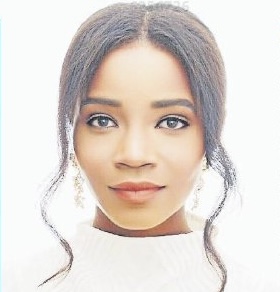News
Kenya Cancels Spyware Contractor’s Passport

A Canadian-based software developer who sued senior Kenyan government officials over a collapsed spyware contract says her passport has been mysteriously cancelled, effectively barring her from entering Kenya as her court case proceeds.
Mary Wachuka Maina discovered last Wednesday at a Canadian airport that her Kenyan passport had been marked as “cancelled” in the Immigration Department’s systems when she attempted to travel.
Her lawyer, Senior Counsel Paul Muite, confirmed that a government insider had verified the cancellation, though no official reason was provided.
The passport cancellation comes as Wachuka pursues a high-stakes lawsuit against four prominent figures in President William Ruto’s administration: Head of Public Service Felix Koskei, Treasury Principal Secretary Chris Kiptoo, businessman Jayesh Saini, and presidential speechwriter Eric Ng’eno. She is seeking $2.2 million (Sh292 million) in compensation for an alleged breach of contract.
Immigration Principal Secretary Belio Kipsang denied the cancellation Monday evening, stating there were “no encumbrances on the passport.”
However, Wachuka provided screenshots from the Immigration Department’s internal systems showing her travel document marked in red as cancelled.
According to court documents, Wachuka claims she was contracted to develop sophisticated surveillance software capable of countering government criticism on social media while supporting Ruto’s 2027 re-election campaign.
The system would allegedly have had “the capacity to spy on targets” and manage social media pages for the President and his deputy.
The controversy began in November 2023 when Ng’eno allegedly approached Wachuka at Moxxies Restaurant in Kilimani, requesting she develop “confidential software” for strategic government communications.
Court papers reveal the project was deemed urgent, with Wachuka told to drop other assignments immediately.
The deal reportedly collapsed after Wachuka raised concerns about businessman Saini’s involvement in overseeing the project’s finances.
When the Kenyan contract fell through, Wachuka was forced to pay $950,430 (Sh123 million) in compensation to a New York firm she had subcontracted for the project.
Muite alleges this isn’t the first attempt to pressure his client into dropping the case.
Two weeks ago, a telecommunications company allegedly demanded Wachuka provide her whereabouts and passport details to maintain her Kenyan SIM card—a line she had used without issue for eight years while living in Canada.
“This is a clear case of violation of my client’s rights. There have been efforts to arm-twist her to drop the case in court,” Muite said, adding he plans to file a formal complaint and seek court redress.
The defendants have categorically denied Wachuka’s allegations.
In their 22-point court response, Koskei and Kiptoo claimed they never met Wachuka and argue that the proposed spying software would violate Kenya’s Constitution and Data Protection Act.
“The plaintiff has expressly admitted perpetuating an illegality by proposing to develop a system that is in utter contravention of the Constitution of Kenya,” they stated, urging the court to dismiss the case.
Saini has similarly denied involvement, calling the allegations “falsehoods” aimed at tarnishing his reputation.
The case raises serious questions about government surveillance capabilities and constitutional rights.
If Wachuka’s allegations prove true, it would represent a significant breach of contract involving senior government officials and suggest attempts to develop surveillance tools that legal experts argue would violate citizen privacy rights.
The passport cancellation—whether confirmed or not adds another layer to what appears to be a high-stakes legal battle with potential implications for government accountability and the treatment of whistleblowers in Kenya’s digital age.
The case continues in Kenyan courts, with Wachuka seeking not only financial compensation but also an order restraining the defendants from sending “menacing death threats” to her and her mother over the disputed contract.
Kenya Insights allows guest blogging, if you want to be published on Kenya’s most authoritative and accurate blog, have an expose, news TIPS, story angles, human interest stories, drop us an email on [email protected] or via Telegram
-

 News2 weeks ago
News2 weeks agoTHE FIRM IN THE DOCK: How Kaplan and Stratton Became the Most Scrutinised Law Firm in Kenya
-

 Economy2 weeks ago
Economy2 weeks agoIran Demands Arrest, Prosecution Of Kenya’s Cup of Joe Director Director Over Sh2.6 Billion Tea Fraud
-

 Grapevine1 week ago
Grapevine1 week agoA UN Director Based in Nairobi Was Deep in an Intimate Friendship With Epstein — He Even Sent Her a Sex Toy
-

 Business2 weeks ago
Business2 weeks agoKPC IPO Set To Flop Ahead Of Deadline, Here’s The Experts’ Take
-

 Politics2 weeks ago
Politics2 weeks agoPresident Ruto and Uhuru Reportedly Gets In A Heated Argument In A Closed-Door Meeting With Ethiopian PM Abiy Ahmed
-

 Investigations1 week ago
Investigations1 week agoHow Mexico Drug Lord’s Girlfriend Gave Him Away
-

 Business2 weeks ago
Business2 weeks agoSafaricom Faces Avalanche of Lawsuits Over Data Privacy as Acquitted Student Demands Sh200mn Compensation in 48 Hours
-

 Investigations1 week ago
Investigations1 week agoHow Close Ruto Allies Make Billions From Affordable Housing Deals

















